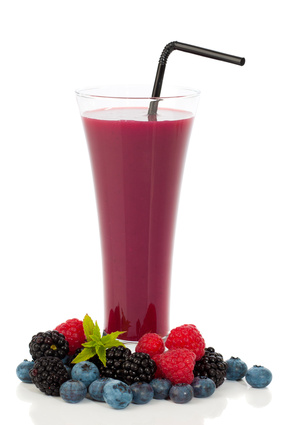
London: Nearly half the population (45%) do not realise that too much saturated fat (SAFA) is bad for their health.
This latest research from independent UK body, The Fat Panel, also reveals that whilst one in seven fail to link coronary heart disease with excessive SAFA intake, nearly one in four believe that reining in saturated fat consumption will improve their love lives.
These findings re-enforce the panels claims that Brits do not understand fats unaware of which are good and which are bad for their health. As a result, on average the UK eats 17% too much saturated fat; raising the risk of developing cardiovascular disease. In view of this, the Food Standards Agencys (FSA) has commissioned a consultation on how to reduce the nations intake of saturated fat and energy.
Most of us should be worrying less about the amount of fat we are consuming, and more about what types of fat were including in our diets. The research is worrying, as it shows that many of us are still unaware of the risks of eating too much saturated fat, despite health professionals and academics long-term concerns backed by a wealth of clinical evidence, said Dr Sarah Berry of The Fat Panel.
Its good to see the Government shining a spotlight on this harmful fat. If it hopes to see a reduction in the amount of saturated fat that people are eating, we need to help people to understand SAFA and why its so bad for your health.
There is a lot of public confusion over which foods are high in saturated fat, making it difficult for the public to know which fats and foods they should avoid or cut down on. More than one third of those questioned (35%) believes that sunflower oil is high in saturated fat (it contains just 12%), whilst more than one quarter think that rapeseed oil is high in this bad fat (it contains just 8% saturated fat).
Nearly one in 10 of those questioned do not realise that butter is high in saturated fat. A further one in eight does not think cakes and biscuits have a high SAFA content. In addition, one in 10 are unaware of meat products, such as meat pies and sausages, containing high levels.
Sian Porter of The Fat Panel says By understanding that saturated fat is bad for the body, the next step is for people to recognise which foods contain these. Snacks such as cakes, biscuits and pastries contain high levels but this can easily be rectified by simply swapping these for healthier options like fruit or even toast with spread which on average contains 25% less saturated fat. Its all about education, and having the knowledge to make informed and as a result healthier choices.
Recent moves on food labelling should help people make these choices; however just half of us even look at the on-pack information when buying butter or spreads for instance, and only one in six look at how much saturated fat is in the pack. When thinking about saturated fat content, all spreads are at least 25% lower in saturated fat than butter and some contain much less with certain spreads offering up to 83% less saturated fat. More and more people are opting for low-fat products, whether on health or diet grounds, but it seems like few consider what type of fat a product contains.
The Fat Panel
Dr Sarah Berry BSc Msc PhD RNutr
Dr Berry is a registered nutritionist, working at kings College, and her specialist area of knowledge and research is lipid metabolism and coronary heart disease risk.
Sian Porter MScBsc(HONS) RD
Sian is a state registered dietician and holds an MSc in Health Economics.
Dr Paul Stillman MB ChB DRCOG PGCHE
Dr Stillman is in general practice in Crawley, Sussex and is a general practice trainer with the British Postgraduate Medical Federation.
Dr Pamela Mason, PhD, MSc, MRPharmS
Dr Mason is a nutritionist and pharmacist.
Dr Chris Steele MB, ChB
Dr Steele is a general practitioner and is the regular ‘doc’ on ITV’s ‘This Morning’ show. He is Health Journalist of the Year.
Dr Amanda Kirby MBBS MRCGP MFFP
Dr Kirby is a GP in Cardiff, with specific experience in community paediatrics.
Research was undertaken by Kember Associates with adults across the UK.
www.TheFatPanel.org.uk
 The super smoothie contains grapejuice, blueberries, strawberries, apple, lingonberry, acerola and aronia. The ones which contain the highest amounts of superfoods are the cowberry (aka lingonberry) – a tart, red fruit related to the cranberry – and acerola, a red cherry-like fruit that has 30 times more vitamin C than orange juice.
The super smoothie contains grapejuice, blueberries, strawberries, apple, lingonberry, acerola and aronia. The ones which contain the highest amounts of superfoods are the cowberry (aka lingonberry) – a tart, red fruit related to the cranberry – and acerola, a red cherry-like fruit that has 30 times more vitamin C than orange juice.


